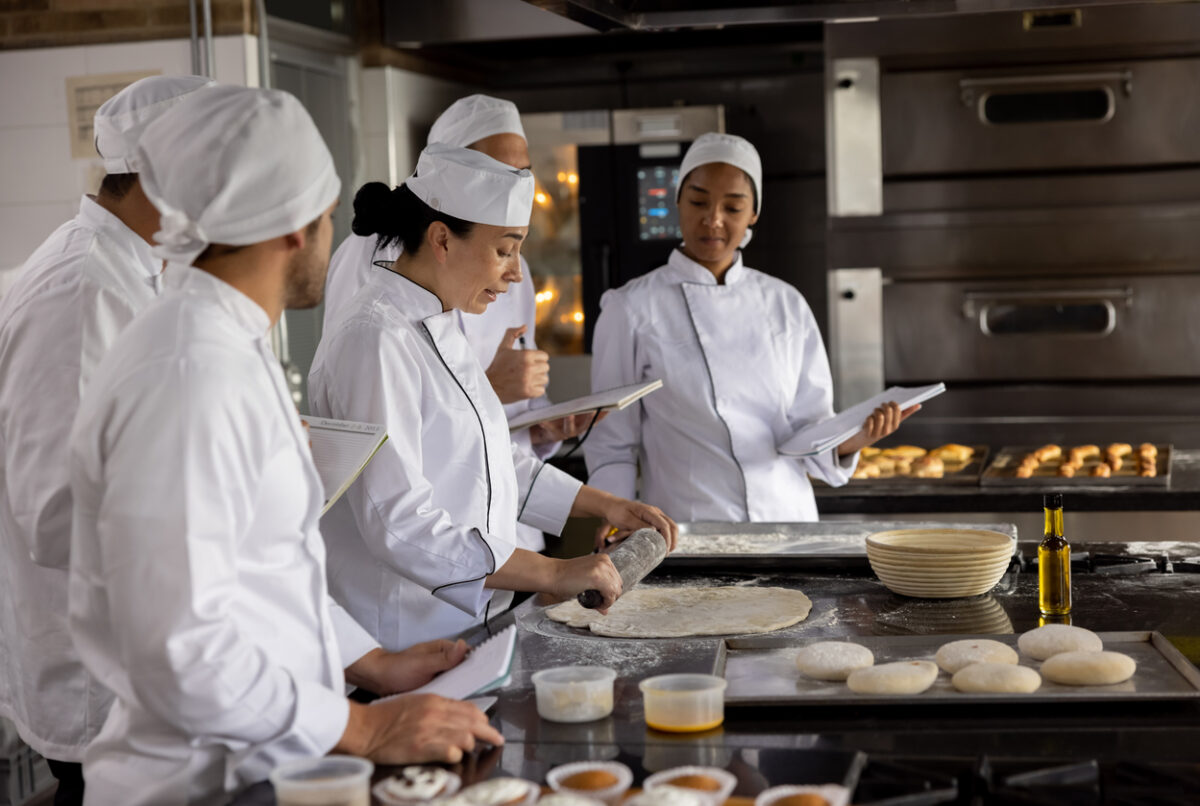Essential soft skills for a career in food and drink

To excel in a career in food and drink you need to be able to show a range of soft skills. The hard skills that are required may change according to how the industry adapts – for example, you may require up to date training to use new technologies or have product development expertise. Soft skills, however, remain with you throughout your career and can be built on in the workplace. They can show how communicative, adaptable, and productive you can be as an employee and help you present yourself as a competitive candidate in the job market.
The great thing about working in the food industry is that no matter where you start – as waiting staff in a restaurant, an engineer, or marketing executive – you can build an array of skills that are transferable to different roles, giving you endless possible career paths when combined with hard skills.
Applying soft skills in the workplace
So which soft skills are especially useful? This depends on what role and area of the sector you go into and what level role you’re applying to.
For instance, if you want to follow a career in hospitality working as a bar or kitchen assistant the key soft skills your prospective employer would look for could include:
- Communication: proves you can work well with multiple people in a bar or kitchen setting, by listening to others, showing respect, and communicating quickly and clearly
- Multitasking and organisation: you’ll be completing multiple tasks at once and need to organise and prioritise specific ones to get things done efficiently. These could include taking a customer’s order, sending that over to the kitchen, managing payments, and serving food and drinks
- Teamwork: working well with your colleagues is crucial in hospitality. Being able to help someone out last minute in a role that’s different to yours to ease pressure in the kitchen would be one such example of teamwork
- Problem-solving: hospitality workers will encounter multiple complaints and queries from customers as well as other issues internally, so it’s good to know how to think quickly, respond empathetically and come up with solutions
- Interpersonal: you’ll need to work well with others, including colleagues as well as customers, and being comfortable dealing with varied social experiences everyday
These skills would also be benefit you if you work in hospitality as a chef, however another couple of essential soft skills for this role include:
- Dexterity: involves being skilful with hand-based tasks, like using knives and cutting food in various formats (e.g. julienned, minced, diced)
- Time management: preparing and plating several dishes within a short period of time is a key part of being a chef, so knowing how to complete a range of tasks at a fast pace while maintaining a high quality of cooking is key
- Creativity: working as a chef involves a lot of creative thinking, from the design of the menus to the plating of the dishes
An example of a different job in the food sector is a nutritionist. While some of the key soft skills for the role differ to those in hospitality, several are similar but are required to complete tasks in different ways:
- Teamwork: this is essential if you work in a larger department with a food manufacturing company or alongside dietitians in a hospital as you need to be able to work well with others to achieve specific goals e.g. supporting a dietitian in providing nutritional treatment for patient, or working with manufacturers to advise on reformulation of food and drink products
- Communication: you’ll need to know how to explain sometimes quite complex information to a client in a clear manner
- Problem-solving: a must-have skill for when a client needs nutrition advice to manage a health concern
- Compassion and empathy: interpersonal skills like these help you to connect well with clients and give them the support they need if they’re facing a difficult situation regarding their health. They can also help you maintain a good professional relationship with your colleagues
- Time management: needed to manage patients’ scheduled appointments and your own time keeping. If you consistently make your patients wait, they may look for a different nutritionist
Another important area in food you could find yourself wanting to work in is engineering. For most engineering roles in the industry, the necessary soft skills could include:
- Dexterity: being skilful with your hands is vital in many engineering roles, to be able to fix faults and improve functionality of plant machinery and equipment
- Problem-solving: recognising the advantages and disadvantages of a technical solution and figuring out which method has the least risk involved
- Attention to detail: having an impeccable eye for detail is essential in engineering roles as even making a tiny mistake can have a serious, negative impact
- Organisation: being able to complete tasks on time and knowing how to manage a high workload, as well as knowing not take too many tasks on at once
- Communication: while in engineering roles much time is spent analysing and coming up with ways to solve technical problems, communicating well is key, especially when discussing a problem and potential solutions with a client. Being able to explain the issue and how it can be fixed clearly and concisely will help you succeed
Depending on your level of seniority in any role, leadership or management may also be a key soft skill to include if you decide to apply for a position that requires managing a team and supporting junior members of staff.







